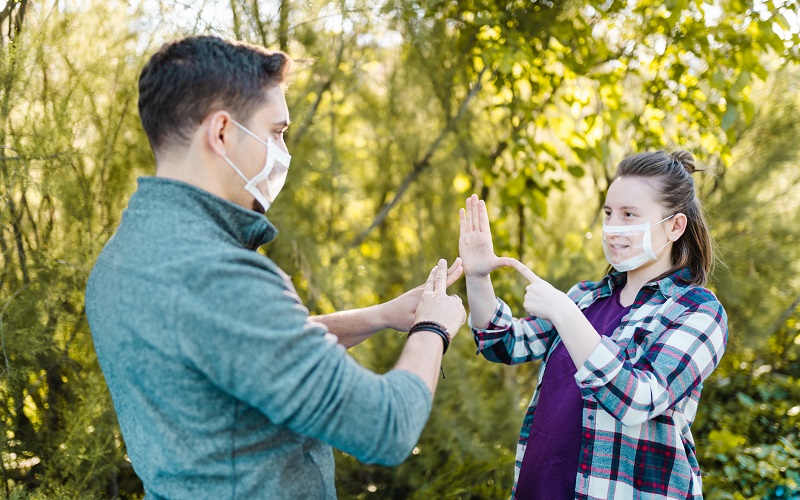
According to Hearing Link, a UK-wide charity for people with hearing loss, it is estimated that there are approximately 11 million people in the country with a hearing loss, which makes it the second most common disability in the UK. In fact, 1 in 6 of the UK adult population is affected by hearing loss.
Yet deafness is such an invisible disability, and it so often goes unnoticed. You might be wandering around the streets and not be aware that the person next to you is deaf or hard of hearing. It makes it easier for those living with hearing loss to be ignored or forgotten.
This has been particularly evident during the Covid-19 pandemic. It was disappointing that there was no British Sign Language (BSL) interpreter during televised Covid-19 briefing and that speaks volumes. While the BBC News channel provides an on-screen interpreter, there has been no live BSL interpreter at government briefings.
If we couldn’t have deaf people access at that highest level, you can imagine how difficult it is at other levels. It presented a perfect opportunity to show support for the deaf community by providing interpreters in the bulletins but unfortunately, this was a missed opportunity.
Many deaf people face discrimination when it comes to finding work. More needs to be done to fly the flag for deaf people, and to show their value.
In fact, the employment rate for those with hearing loss is 65%, compared to 79% of people with no long-term health issue or disability. Moreover, recent estimates suggest that the UK economy loses £25 billion a year in lost productivity and unemployment due to hearing loss.
At Cygnet Health Care, we are one of the largest mental health deaf services in the UK and we employ a number of clinical and supporting staff who are deaf themselves. We ensure that deaf members of staff have the communication support they need to work effectively and meaningfully with deaf service users and their hearing colleagues within the multidisciplinary teams.
Our deaf staff play important roles not just as part of the care support team, but also as role models for the service users. The deaf members of staff demonstrate directly to the service users that they can have successful or meaningful lives, which helps to give hope and purpose for their own future.
In addition, the staff provide cultural and linguistic links to our service user’s recovery journey, which is incredibly valuable as they share the same culture, identity and language. We think it is a crucial part of the recovery process, to be cared for by people who share their culture, language and identity.
There are so many services in the community that have very little understanding about the needs of deaf people. Through our care, treatment and engaging with community services, we are trying to provide information to services as much as possible so that the needs of deaf service users are met when they are discharged from hospital.
The most important thing for everyone is to show a little bit of deaf awareness. Don’t be frightened of gesturing or trying to use your hand. The best thing you can do for a deaf person is to make some sort of attempt to communicate with them so that they don’t feel left out within their own community. If every shop, service or business person showed a little bit of deaf awareness, it would make lives so much easier for millions of deaf people in the UK.